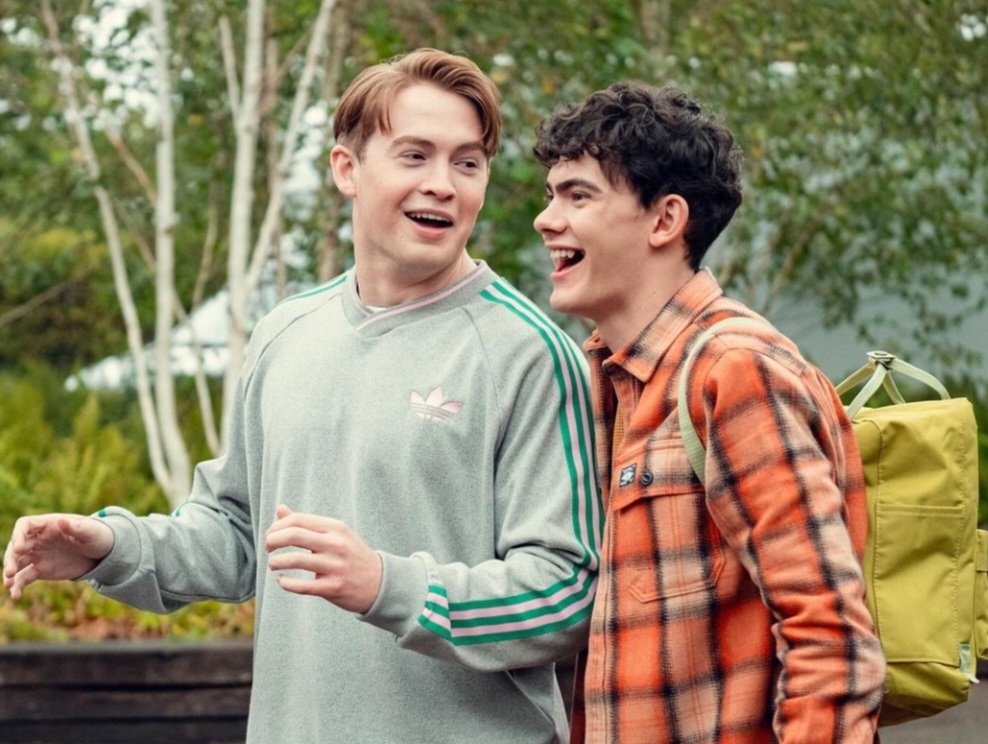
Abigail Meardon praises the representation of love that Heartstopper brings to season 3
Content warning: References to mental health struggles and sex
Heartstopper is a standout success on Netflix, and quickly rose in popularity particularly within the LGBTQ+ community. Full of teenage angst and queer joy, it’s hard not to fall in love with its characters and their stories. The latest season takes us on an emotional rollercoaster, which is hard at times, but worth it. The show has gone from stopping our hearts to breaking them.
“The show has gone from stopping our hearts to breaking them.
As a queer person, I felt personally seen by the earlier seasons. The show realistically portrays the journey of coming out. It captures the highs and lows, and how it can often be messy. The previous seasons were brimming with queer, young love as they explored the joy and confusion of crushing on someone. However, season three takes us down a tougher path with the exploration of more complex adult themes.
Charlie (Joe Locke) struggles with his mental health this season, leading to his stay in a mental health facility. Episode four, ‘Journey’, explores his recovery process. I appreciated how the show hinted at mental illness without explicitly naming it at first. This felt like a realistic representation, as mental illness often does take a while to spot. As Heartstopper has so eloquently shown, it’s often our loved ones who notice something is wrong before we do.
This season places a strong emphasis on the importance of loved ones. While romantic love remains a key theme, I enjoyed the attention Heartstopper paid to other relationship types. One beautifully depicted relationship was the one between Charlie and his sister Tori (Jenni Walser). In episode five, ‘Winter’, Tori climbs into bed with her brother. In a lovable exchange of dark humour and mutual dread, they share their worries about Christmas.
Charlie’s friendship group provide invaluable support during his time as an inpatient, highlighting how love comes in many different forms. This point is perfectly summarised in episode eight, ‘Apart’, when Charlie says in a therapy session, ‘Even though I love Nick, I need other people’. This quote underscores that romantic love alone isn’t sufficient; friendships, family, and mental health professionals are all crucial for fulfillment and healthy relationships.
This season of Heartstopper also explores sexual expression in healthy relationships. In particular, it covers subjects such as the apprehension of having sex for the first time, and being scared to be intimate with someone. Nick (Kit Connor) and Charlie feel ready to take their relationship to a sexual level. I liked how the show tentatively and gradually approached this topic, whilst also commending consent and good communication.
I thought it was interesting how the season explored the question of ‘what is sex?’ For example, in episode eight, ‘Apart’, Nick asks, ‘Do you think it counts as sex if it’s just touching?’ Charlie responds , ‘I think sex can be all sorts of things.’ In my opinion, this was a positive way of representing sex in the media. Often, we see heteronormative sex scenes which are not inclusive and do not portray real people’s diverse experiences of sex. Heartstopper’s conversations on sex represent a positive step forward
“This season of Heartstopper was clever in the way it matured with the audience.
Overall, I loved this season of Heartstopper. While there was some disappointment with the show no longer being a happy escapism, I think this season of Heartstopper was clever in how it matured with the audience. It addresses real issues people face. The impact Heartstopper has in making viewers feel less alone should not be underestimated.
More from Redbrick TV:
Comments